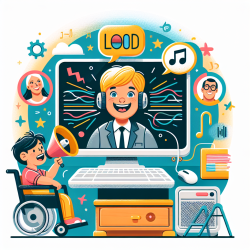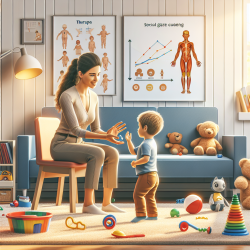The journey of surviving cancer is arduous, but the battle doesn't end with remission. A critical area of concern for children treated with platinum-based chemotherapy (PBCT) is the long-term impact on their hearing, balance, and overall quality of life. A recent literature review, titled The long-term impacts of hearing loss, tinnitus and poor balance on the quality of life of people living with and beyond cancer after platinum-based chemotherapy, sheds light on these often-overlooked issues. This blog will discuss how practitioners can leverage these findings to improve outcomes for young cancer survivors.
Key Findings from the Research
The literature review identified several long-term effects of PBCT:
- Hearing Loss: High frequencies are typically the first to deteriorate, affecting speech perception and communication.
- Tinnitus: Persistent ringing or buzzing sounds that can interfere with concentration and sleep.
- Balance Issues: Vestibulotoxicity can lead to poor balance, increasing the risk of falls and injuries.
These effects collectively compromise social interactions, cognitive development, educational performance, and mental health.
Strategies for Practitioners
To mitigate these long-term impacts, practitioners can adopt the following strategies:
- Early Monitoring and Intervention: Implement baseline audiological assessments before starting chemotherapy and continue monitoring throughout and after treatment. This can help in early identification and intervention.
- Use of Hearing Aids and Assistive Devices: Encourage the use of hearing aids and other assistive devices to improve communication and reduce social isolation.
- Balance Training: Incorporate balance training and vestibular rehabilitation exercises to help children regain stability and reduce the risk of falls.
- Educational Support: Collaborate with schools to provide tailored educational support, such as seating arrangements that facilitate better hearing and one-on-one assistance.
- Mental Health Support: Offer counseling and mental health support to help children cope with the emotional and psychological impacts of ototoxicity.
Encouraging Further Research
While the current research provides valuable insights, there are still gaps that need to be addressed:
- Longitudinal Studies: More long-term studies are needed to understand the progression of ototoxicity and its impacts over time.
- Focus on Balance Issues: Research on vestibulotoxicity is relatively sparse compared to hearing loss and tinnitus. More studies are needed in this area.
- Patient-Centered Approaches: Investigate why there is a discrepancy in coping mechanisms among survivors and how tailored interventions can be developed.
To read the original research paper, please follow this link: The long-term impacts of hearing loss, tinnitus and poor balance on the quality of life of people living with and beyond cancer after platinum-based chemotherapy: a literature review.










